Reflections of a Former Young Person
As I read a recent update of a United Nations data report, this statistic jumped out at me: There are 2.4 billion young people, between ages 10 and 29, living in our world today. This is the largest youth population in history. Within this age range, I see some distinctive age groups, each with their own perspectives and challenges. My thoughts ran to the volumes of internet articles that package these young people into stereotypical boxes with labels like millennial, Gen Z, and Generation Alpha. While it seems to be a more scientific approach to understanding them, these come from the pervasive and persistent human need to process, categorize, and simplify a complex world. We tend to conveniently assign individuals with qualities we think as “typical” for their age, which typically boils down to our own perceptions.
Everyone is shaped by the technological, societal, and global contexts of their upbringing and unique life experiences. Every schoolteacher and parent of multiple children can attest to the uniqueness of every individual. Each child possesses the potential to become a future leader who can impact their generation and the next. Grounding them with this vision provides a strong foundation of confidence, enabling them to become resilient adults who are not easily swayed.
Imagine the realities of growing up today — going through the necessary transitions in your body, relationships, and life situations in our present time. You press on, juggling life-altering decisions regarding your career, life partners, finances, and faith. Add to that the endless bombardment of opinions and fast-paced developments from an ever-present digital megaphone blaring throughout our hyperconnected world. As you consider the things of the world, your easily influenced opinions can lead to flexible convictions. You find that older people try to connect, but they don’t understand you and some don’t even try to.
Connecting with young people today in an intentional and individualized way requires patience, wisdom, and love. Being willing to listen rather than preach. Taking time rather than taking connection for granted. Inviting them to an open discussion instead of dictating directives. These build bridges that connect instead of walls that divide.
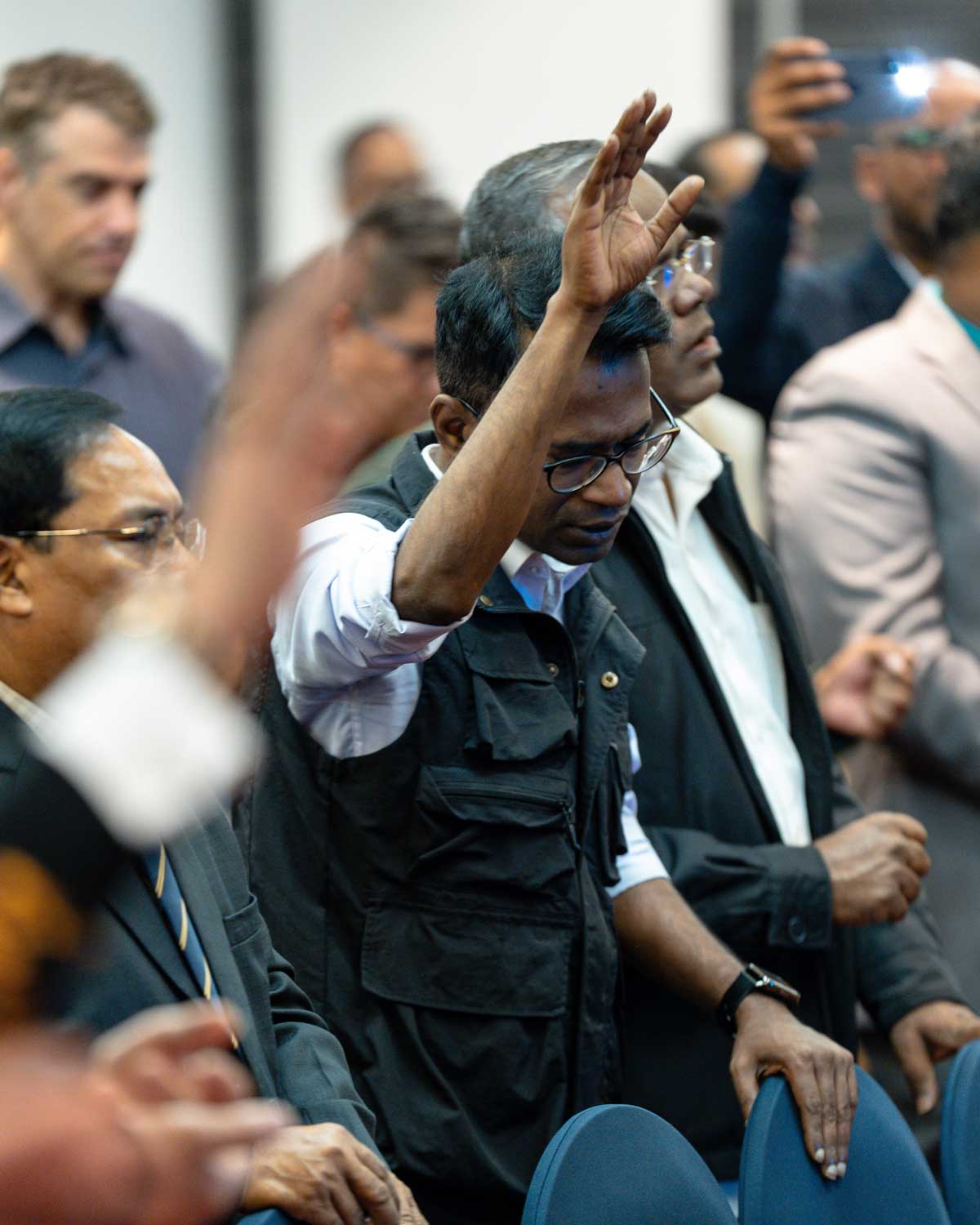
Amidst searching for what many define as success — whether it be wealth or position, prestige, or reputation — we all have a basic need for purpose, identity, and security. Being there to support young people in their quest, to meet them where they are, is key to opening the door to deeper understanding and meaningful relationship. Meeting them where they are to help them navigate “adulting” gives them firm ground to stand upon. Helping them make their own decisions and get their own footing sets them on a journey toward healthy independence and fulfillment.
Ultimately, our lives speak the loudest. How we speak and act, how we deal with victory and adversity, how we give of ourselves — and care for those who come behind us — all send a message of who we are. At some point, most of us will have the opportunity to share our lives with young people and impart what matters most to us. This becomes an invitation to partake in our greatest joy — telling others about our Savior, who loves us and gives us the purpose, identity, and eternal security we all — no matter our age — long for.
“Yes, whatever a person is like, I try to find common ground with him so that he will let me tell him about Christ and let Christ save him. I do this to get the Gospel to them and also for the blessing I myself receive when I see them come to Christ.” 1 CORINTHIANS 9:22B-23, TLB
Written by Dr. Joey Chuaunsu Executive Director of Equipping
Reflections of a Former Young Person
As I read a recent update of a United Nations data report, this statistic jumped out at me: There are 2.4 billion young people, between ages 10 and 29, living in our world today. This is the largest youth population in history. Within this age range, I see some distinctive age groups, each with their own perspectives and challenges. My thoughts ran to the volumes of internet articles that package these young people into stereotypical boxes with labels like millennial, Gen Z, and Generation Alpha. While it seems to be a more scientific approach to understanding them, these come from the pervasive and persistent human need to process, categorize, and simplify a complex world. We tend to conveniently assign individuals with qualities we think as “typical” for their age, which typically boils down to our own perceptions.
Everyone is shaped by the technological, societal, and global contexts of their upbringing and unique life experiences. Every schoolteacher and parent of multiple children can attest to the uniqueness of every individual. Each child possesses the potential to become a future leader who can impact their generation and the next. Grounding them with this vision provides a strong foundation of confidence, enabling them to become resilient adults who are not easily swayed.
Imagine the realities of growing up today — going through the necessary transitions in your body, relationships, and life situations in our present time. You press on, juggling life-altering decisions regarding your career, life partners, finances, and faith. Add to that the endless bombardment of opinions and fast-paced developments from an ever-present digital megaphone blaring throughout our hyperconnected world. As you consider the things of the world, your easily influenced opinions can lead to flexible convictions. You find that older people try to connect, but they don’t understand you and some don’t even try to.
Connecting with young people today in an intentional and individualized way requires patience, wisdom, and love. Being willing to listen rather than preach. Taking time rather than taking connection for granted. Inviting them to an open discussion instead of dictating directives. These build bridges that connect instead of walls that divide.

Amidst searching for what many define as success — whether it be wealth or position, prestige, or reputation — we all have a basic need for purpose, identity, and security. Being there to support young people in their quest, to meet them where they are, is key to opening the door to deeper understanding and meaningful relationship. Meeting them where they are to help them navigate “adulting” gives them firm ground to stand upon. Helping them make their own decisions and get their own footing sets them on a journey toward healthy independence and fulfillment.
Ultimately, our lives speak the loudest. How we speak and act, how we deal with victory and adversity, how we give of ourselves — and care for those who come behind us — all send a message of who we are. At some point, most of us will have the opportunity to share our lives with young people and impart what matters most to us. This becomes an invitation to partake in our greatest joy — telling others about our Savior, who loves us and gives us the purpose, identity, and eternal security we all — no matter our age — long for.
“Yes, whatever a person is like, I try to find common ground with him so that he will let me tell him about Christ and let Christ save him. I do this to get the Gospel to them and also for the blessing I myself receive when I see them come to Christ.” 1 CORINTHIANS 9:22B-23, TLB
Written by Dr. Joey Chuaunsu Executive Director of Equipping
Reflections of a Former Young Person
As I read a recent update of a United Nations data report, this statistic jumped out at me: There are 2.4 billion young people, between ages 10 and 29, living in our world today. This is the largest youth population in history. Within this age range, I see some distinctive age groups, each with their own perspectives and challenges. My thoughts ran to the volumes of internet articles that package these young people into stereotypical boxes with labels like millennial, Gen Z, and Generation Alpha. While it seems to be a more scientific approach to understanding them, these come from the pervasive and persistent human need to process, categorize, and simplify a complex world. We tend to conveniently assign individuals with qualities we think as “typical” for their age, which typically boils down to our own perceptions.
Everyone is shaped by the technological, societal, and global contexts of their upbringing and unique life experiences. Every schoolteacher and parent of multiple children can attest to the uniqueness of every individual. Each child possesses the potential to become a future leader who can impact their generation and the next. Grounding them with this vision provides a strong foundation of confidence, enabling them to become resilient adults who are not easily swayed.
Imagine the realities of growing up today — going through the necessary transitions in your body, relationships, and life situations in our present time. You press on, juggling life-altering decisions regarding your career, life partners, finances, and faith. Add to that the endless bombardment of opinions and fast-paced developments from an ever-present digital megaphone blaring throughout our hyperconnected world. As you consider the things of the world, your easily influenced opinions can lead to flexible convictions. You find that older people try to connect, but they don’t understand you and some don’t even try to.
Connecting with young people today in an intentional and individualized way requires patience, wisdom, and love. Being willing to listen rather than preach. Taking time rather than taking connection for granted. Inviting them to an open discussion instead of dictating directives. These build bridges that connect instead of walls that divide.

Amidst searching for what many define as success — whether it be wealth or position, prestige, or reputation — we all have a basic need for purpose, identity, and security. Being there to support young people in their quest, to meet them where they are, is key to opening the door to deeper understanding and meaningful relationship. Meeting them where they are to help them navigate “adulting” gives them firm ground to stand upon. Helping them make their own decisions and get their own footing sets them on a journey toward healthy independence and fulfillment.
Ultimately, our lives speak the loudest. How we speak and act, how we deal with victory and adversity, how we give of ourselves — and care for those who come behind us — all send a message of who we are. At some point, most of us will have the opportunity to share our lives with young people and impart what matters most to us. This becomes an invitation to partake in our greatest joy — telling others about our Savior, who loves us and gives us the purpose, identity, and eternal security we all — no matter our age — long for.
“Yes, whatever a person is like, I try to find common ground with him so that he will let me tell him about Christ and let Christ save him. I do this to get the Gospel to them and also for the blessing I myself receive when I see them come to Christ.” 1 CORINTHIANS 9:22B-23, TLB
Written by Dr. Joey Chuaunsu Executive Director of Equipping
Comments
Comments
-
A big generations that will either make or mare the world. Those with the genuine love for God must reach them quickly for Christ to save them, their future and the world. God help us all, amen.


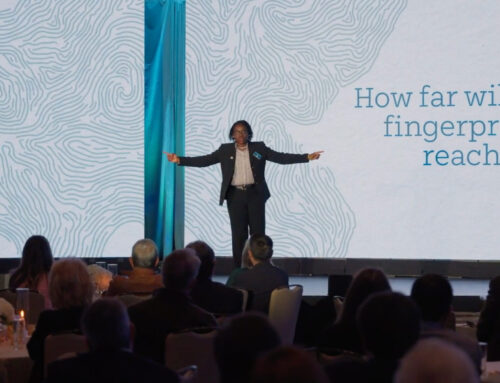



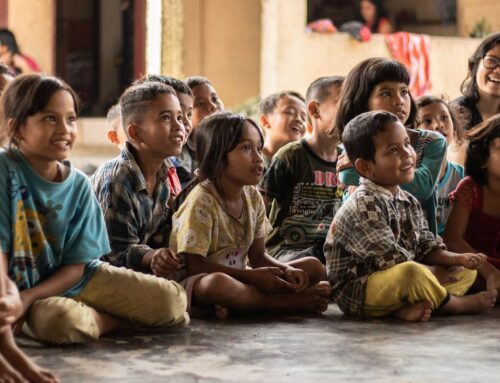
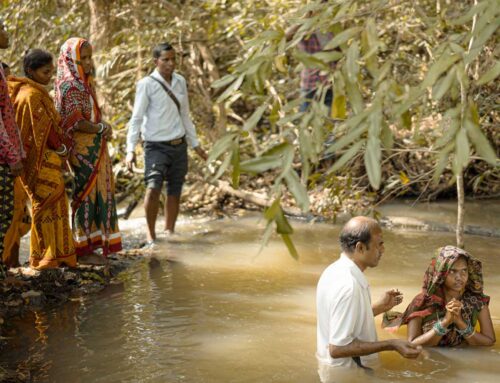
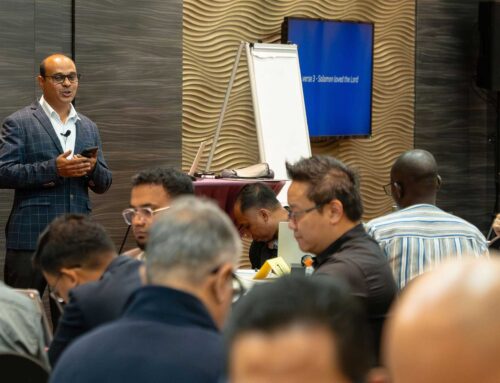







A big generations that will either make or mare the world. Those with the genuine love for God must reach them quickly for Christ to save them, their future and the world. God help us all, amen.